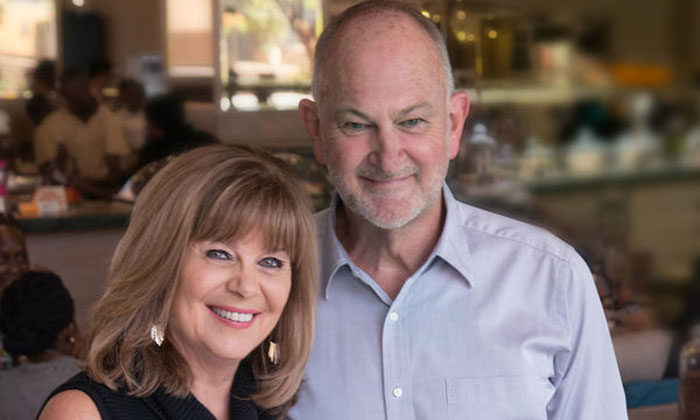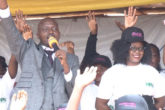
Amidst a catastrophic civil war that began in 1983 and ended in 2005, Juba, which is now the the capital and largest city of South Sudan, registered a low Christian population growth as multitudes fled the nation in quest for peace.
This is all changing, thanks to Watoto Church, which established a celebration point right during the civil war, to serve the community, spread the gospel and provide answers to the spiritual questions that war raised.
Watoto Church held its first prayer service in Lamac Hotel in September 2012, with a few people. In December 2012, war broke out again, but Watoto Church did not leave.
Speaking to multitudes during the ministry’s ‘Vision Weekend‘ in Kampala, Gary Skinner, the founder of Watoto Church revealed that they first left their 300-seater facility for bigger space when church attendance rates increased.
“When we went up, you know what, both services, 1,200 seats were jam packed full in Juba,” he said.
“There’s this generation of young South Sudanese, who are part of building a new nation, the newest nation on earth, and they’re coming to church,” he said.
“We’re making space for the next generation of young African leaders to go to a church where they feel, ‘This is my home. This is where I belong. This is where I’m empowered. This is where I can be a part of the future,'” he further explained.
In a statement by the Church press team, one believer, Joel Ogwal, in Juba remarked:
“Juba is alive. People are hopeful. Without hope, I don’t think there is any meaning to life. And the most encouraging think for us is that we know our hope is Jesus.
“There has been conflict and war, but Watoto Church stayed. And there has been great growth. We’ve had to move into bigger venues three times since we’ve started. We outgrew every facility we’ve been in. And it is time to get started on our permanent home,” Joel Ogwal said.
Pastor Gary Skinner noted that similar growth has been observed in Church branches across Uganda.
“We are standing today where God has brought us, but this is not enough. God wants to do more. God wants to take us to the next level. God wants to take us one step higher – I am 67 years of age, in a process of transition from my leadership to the next generation of leadership,” he said.
Like a page out of the Bible, it should be noted that Swarms of locusts which are wreaking havoc across East Africa also arrived in South Sudan, the government said Tuesday.
The invasion is worsening food shortages in a region where up to 25 million people are suffering from three consecutive years of droughts and floods.
Amid reports that several Christian Charity organisations have come up to respond to the crisis, Pastor Gary Skinner observed that the solution for solving Africa’s problem lies in the generation of young Africans “who need to believe that they can be a part of building a new Africa.”
“God began to speak to me so clearly about the fact that the community is owned by God. It’s not owned by the government. It’s not owned by the people. God owns everything. He made it. So the community problems are not the government’s problems. They’re God’s problems. And God gives His problems to the church,” he said.
“It’s not about what one man does behind a pulpit on Sunday that really matters. But it’s about what everybody does [every other day of the week], taking the kingdom into the community. And how do we do that? Not by preaching sermons, but by being living sermons demonstrating the character of God and in our community,” he said.

